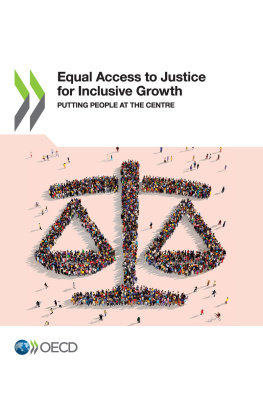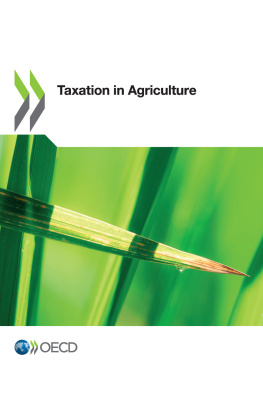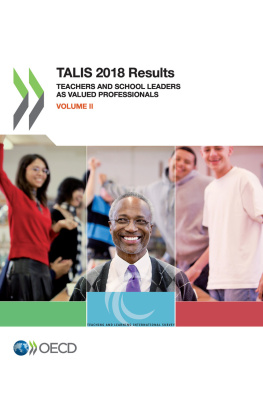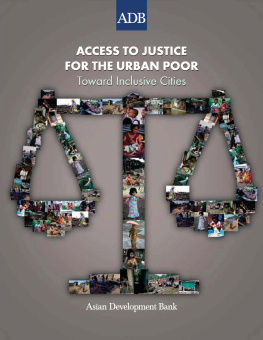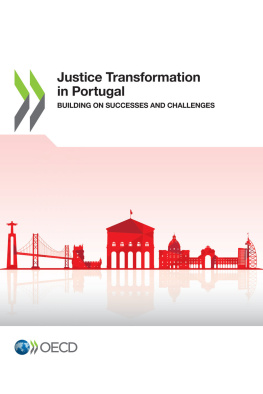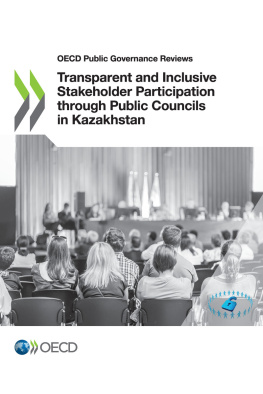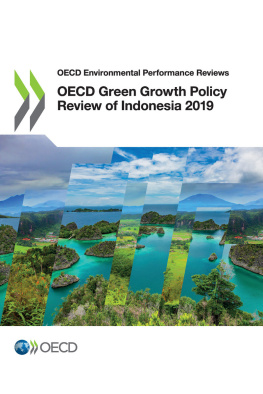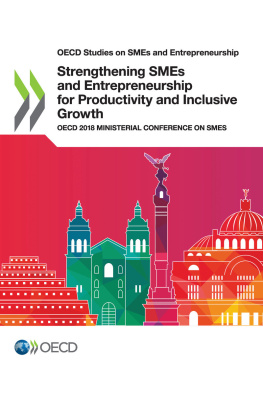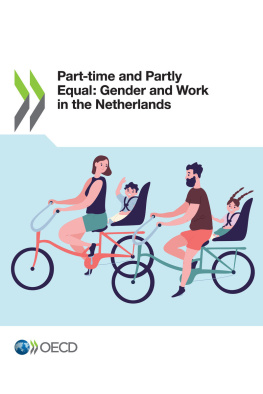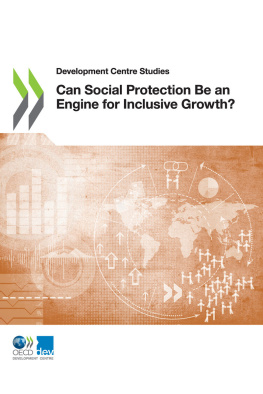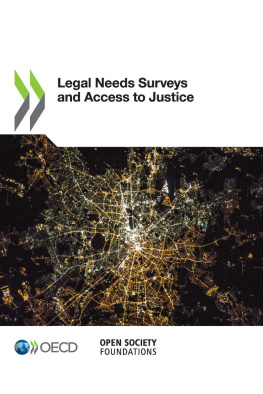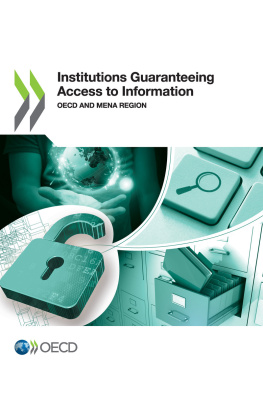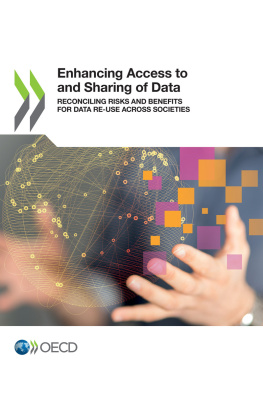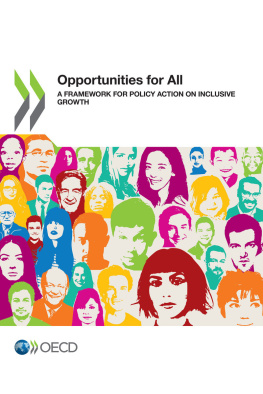OECD - Equal Access to Justice for Inclusive Growth
Here you can read online OECD - Equal Access to Justice for Inclusive Growth full text of the book (entire story) in english for free. Download pdf and epub, get meaning, cover and reviews about this ebook. year: 2019, publisher: OECD Publishing, genre: Politics. Description of the work, (preface) as well as reviews are available. Best literature library LitArk.com created for fans of good reading and offers a wide selection of genres:
Romance novel
Science fiction
Adventure
Detective
Science
History
Home and family
Prose
Art
Politics
Computer
Non-fiction
Religion
Business
Children
Humor
Choose a favorite category and find really read worthwhile books. Enjoy immersion in the world of imagination, feel the emotions of the characters or learn something new for yourself, make an fascinating discovery.
Equal Access to Justice for Inclusive Growth: summary, description and annotation
We offer to read an annotation, description, summary or preface (depends on what the author of the book "Equal Access to Justice for Inclusive Growth" wrote himself). If you haven't found the necessary information about the book — write in the comments, we will try to find it.
OECD: author's other books
Who wrote Equal Access to Justice for Inclusive Growth? Find out the surname, the name of the author of the book and a list of all author's works by series.
Equal Access to Justice for Inclusive Growth — read online for free the complete book (whole text) full work
Below is the text of the book, divided by pages. System saving the place of the last page read, allows you to conveniently read the book "Equal Access to Justice for Inclusive Growth" online for free, without having to search again every time where you left off. Put a bookmark, and you can go to the page where you finished reading at any time.
Font size:
Interval:
Bookmark:
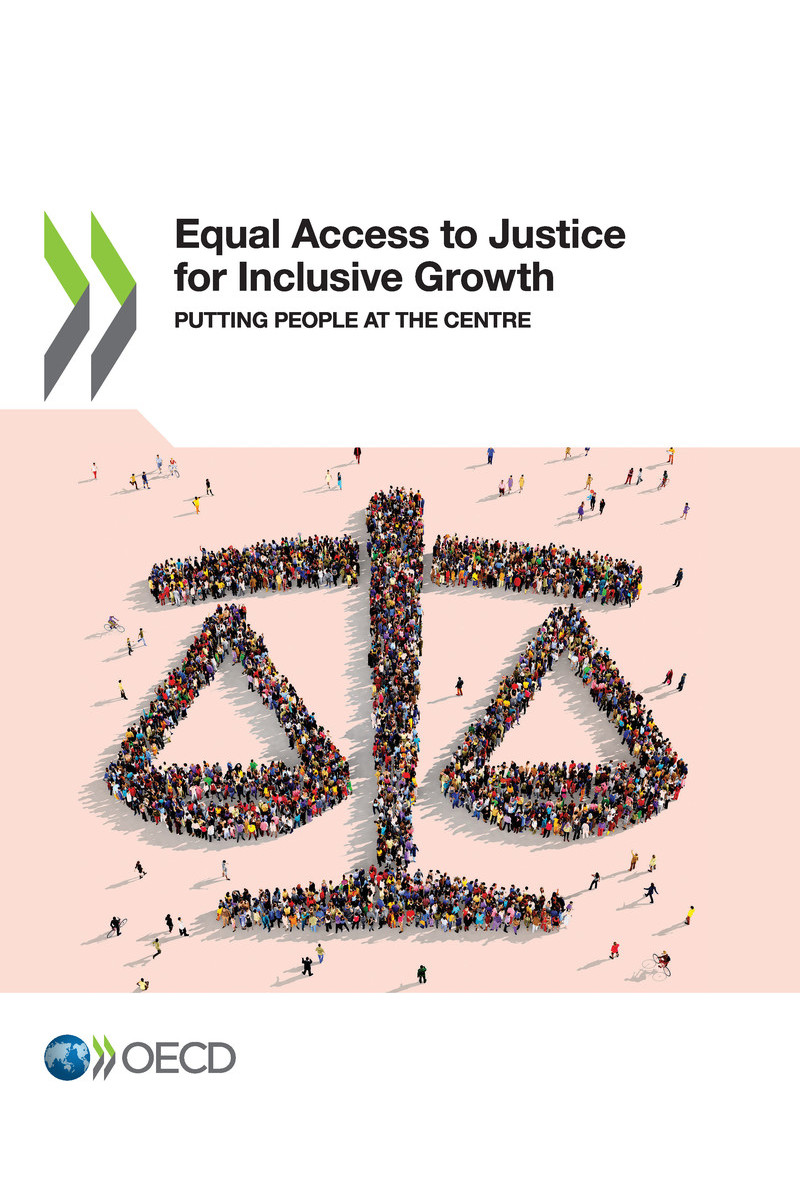
OECD (2019), Equal Access to Justice for Inclusive Growth: Putting People at the Centre , OECD Publishing, Paris, https://doi.org/10.1787/597f5b7f-en .
Equal access to justice and legal empowerment are intrinsic goods; they are also fundamental components of inclusive development, good governance, public policy performance and the rule of law, as underlined by the UN Sustainable Development Agenda.
The law shapes and pervades the everyday lives of people and businesses. Lack of legal empowerment and unequal access to justice generate significant socio-economic costs for individuals and societies: they narrow economic opportunities, reinforce the poverty trap and undermine human potential. Poor, marginalised and vulnerable populations, including women, youth, disabled people, indigenous and migrant groups, and small and medium-sized enterprises, are disproportionately affected, leading to further disadvantage and inequality.
This report draws on over five years of research and collaboration with OECD Member and partner countries, focusing on the necessary steps to establish access to justice for all. These steps start with a better understanding of peoples legal needs and how access to justice affects many areas of life, including physical and mental health, employment, productivity and family stability.
Justice systems are made up of a series of complex pathways or justice chains from the viewpoint of individuals, families and communities. The report provides guidance on how to effectively measure and address peoples legal needs and incorporate people-centred perspectives when designing and planning responsive and integrated legal and justice services.
Under the purview of the Public Governance Committee, the OECD Public Governance Directorate established a platform for dialogue, the OECD Global Roundtables on Equal Access to Justice, to deepen and further our collective understanding of effective people-centred access to justice and the crucial role it plays as a contributor to inclusive and sustainable growth.
Justice delayed for some is sustainable growth denied for all could be a maxim of the Sustainable Development Agenda. To support countries in addressing this challenge, the OECD is ready to support current global efforts to bring justice closer to all people.
This flagship report presents the OECD work on Equal Access to Justice of the OECD Public Governance Directorate, under the direction of Marcos Bonturi. The work and report were led by Tatyana Teplova, Head, Gender, Justice and Inclusiveness, OECD Public Governance Directorate, co-ordinated by Chloe Lelievre, Justice Policy Analyst, under the guidance of Martin Forst, Head of Division, Governance Reviews and Partnerships.
Major drafting contributions were received from Geoff Mulherin, Director, Law and Justice Foundation of New South Wales (Chapters 2 and 3), Melina Buckley, Chairwoman, Access to Justice Committee, Canadian Bar Association (Chapters 4 and 5) and Tatyana Teplova (Chapter 2). This report was compiled and edited by Melina Buckley, under a framework developed by Chloe Lelievre and Tatyana Teplova, and with drafted input provided by Dana Ghandour and Martyna Wanat, OECD Public Governance Directorate.
The OECD mapping of country practices (prepared through desk research) was conducted by Marcus Burke, Maria Melstveit, Margaux Mery, Abbey Seckerson and Martyna Wanat. This publication also benefitted from background research, literature reviews and further input provided by Jean-Jacques Hible and Paul Frissard. Ayesha Amin and Myron Manns provided review and editing support.
This publication is the result of contributions from a wide range of sources and expertise. Special appreciation is due to participants of OECD Policy Roundtables on Equal Access to Justice convened in 2015, 2017 and 2018; participants of joint OECD-OSJI events held in 2015 and 2016; participants of a joint workshop with the Task Force on Justice of the Pathfinders of Just, Inclusive and Peaceful Societies in 2018 and members of advisory streams who provided valuable input and feedback. In particular, the OECD gratefully acknowledges generous comments and contributions from:
Canadian Bar Association (Melina Buckley)
Canadian Bureau for International Education (Larissa Bezo, Oksana Kikot)
Canadian Forum on Civil Justice (Ab Currie, Trevor Farrow)
Department of Justice, Canada (Janet McIntyre)
Department of Justice, United States (Allen Beck, Maha Jweied)
Department of National Planning, Colombia (Gabriel Cifuentes, Manuel Felipe Diaz Rangel)
European Commission (Per Ibold, Ines Hartwig)
Fordham University (David Udell)
Harvard Law School (Christopher Griffin)
HEC Paris; Menon Economics (Reza Lahidji)
HM Courts & Tribunals Service, United Kingdom (Rohan Grove, Liz Vourdas)
International Development Centre, Canada (Adrian Di Giovanni)
Law and Justice Foundation of New South Wales (Geoff Mulherin)
Legal Services Corporation, United States (Glenn Rawdon)
Ministry of Foreign Affairs, Netherlands (Marianne Peters)
Ministry of Interior, Mexico (David Arellano Cuan, Raul Landgrave, Abril Reynoso)
Ministry of Justice and Human Rights, Argentina (Gustavo Maurino)
Ministry of Justice, Egypt (Mostafa Farrag)
Ministry of Justice, France (Karine Gilberg, Parvine Ghadami)
Ministry of Justice, Italy (Gianluca Forlani)
Ministry of Justice, Netherlands (Eliane Eijnwachter)
Font size:
Interval:
Bookmark:
Similar books «Equal Access to Justice for Inclusive Growth»
Look at similar books to Equal Access to Justice for Inclusive Growth. We have selected literature similar in name and meaning in the hope of providing readers with more options to find new, interesting, not yet read works.
Discussion, reviews of the book Equal Access to Justice for Inclusive Growth and just readers' own opinions. Leave your comments, write what you think about the work, its meaning or the main characters. Specify what exactly you liked and what you didn't like, and why you think so.

